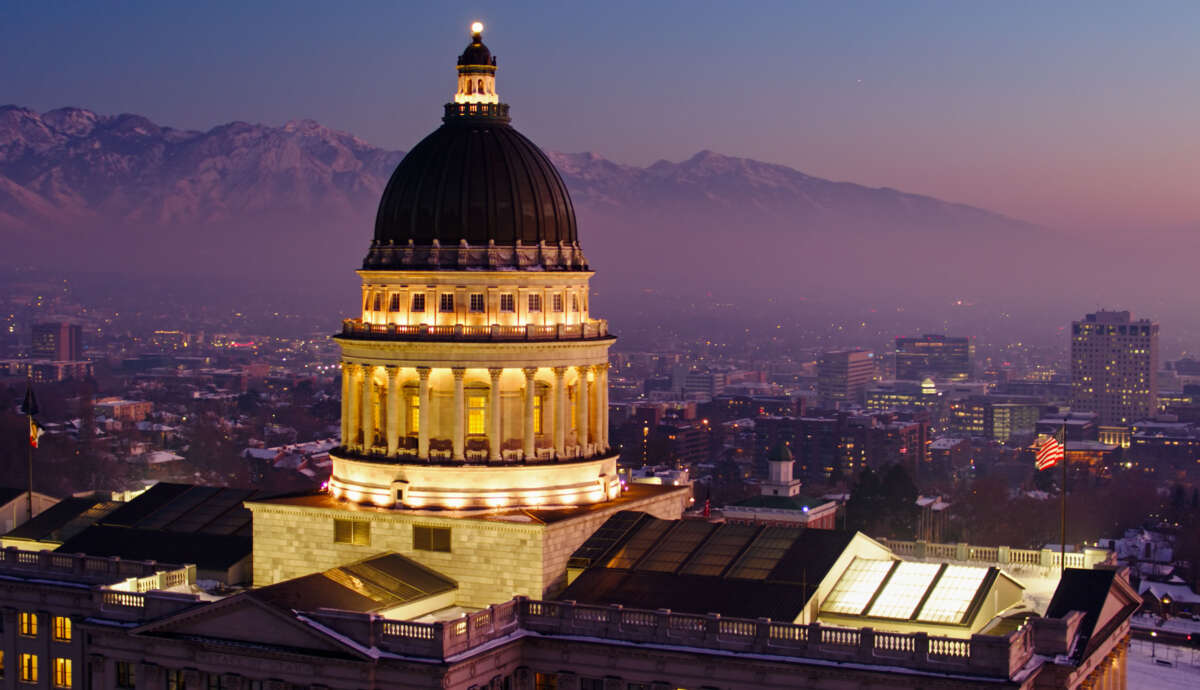Three days into Utah’s general session, the state’s House of Representatives passed the country’s first anti-trans bill of 2024. H.B. 257 would criminalize transgender people for using a bathroom that doesn’t correspond with their birth certificate, end the legal recognition of trans people by redefining “sex” to exclude trans people, and bar local governments from enacting laws to protect trans people from criminalization.
“This will profoundly impact travel for trans people,” transgender journalist Erin Reed said on social media. “Salt Lake City is a major connecting flight hub. Trans people could be arrested in the airport under this law.”
In addition to affecting transgender people in airports, the bathroom ban would also be applied to public schools, colleges and universities, and convention centers. Transgender adults would only legally be allowed to use bathrooms that correspond with their gender identity if they have an updated birth certificate and can provide proof that they underwent gender reassignment surgery. Those in violation of this bill could be guilty of criminal trespassing and voyeurism, punishable by up to six months in jail and a $1,000 fine.
According to the Movement Advancement Project (MAP), nine states currently prohibit transgender individuals from using restrooms and facilities that align with their gender identity in government-owned buildings and/or educational institutions, including K-12 schools and colleges. If H.B. 257 is enacted, Utah would have one of the most extreme anti-transgender bathroom bans in the country and join Florida in being one of the least safe states for trans people in the U.S.
“Should this bill pass, Utah would join Florida in becoming a ‘Do Not Travel’ state for transgender people on the risk assessment map, a position held only by Florida after several organizations issued travel advisories warning of bathroom laws that could put them in legal jeopardy,” Reed wrote.
Although H.B. 257 contains an exception for transgender people with revised birth certificates who have also undergone gender reassignment surgery, the bill includes a provision that could render this exception ineffective. This provision modifies the legal definition of “sex” with the aim of excluding transgender people from legal recognition and protection.
In 2023, Kansas implemented a similar law, prompting Attorney General Kris Kobach to issue a directive mandating the reversal and cease of any alterations made to the birth certificates of trans people. Kansas Gov. Laura Kelly’s (D) administration continued to allow license changes in conflict with Kobach’s directive, triggering a lawsuit by Kobach in July which is still working its way through the courts.
Moreover, according to MAP, birth certificate changes are currently prohibited in five states. These anti-trans restrictions make it impossible for transgender people from Montana, North Dakota, Kansas, Oklahoma, and Tennessee to meet the exceptions outlined in H.B. 257, exposing them to the risk of criminalization when they are in Utah.
“I’m scared for every transgender person who has to choose between holding their bladder or potentially being seen as a criminal,” Rep. Sahara Hayes (D), the only openly LGBTQ member of the Utah legislature, said on Friday. “And I’m scared for my family. We have had multiple discussions about what our lives would look like if this should pass.”
LGBTQ advocates have highlighted that the bill would also pose a risk to cisgender people, as there are multiple examples of cisgender people being mistaken for trans while in the bathroom. With this in mind, H.B. 257 provides two defenses for cisgender people if they are criminalized under this ban.
Finally, H.B. 257 would authorize the attorney general to intervene against any local government failing to enforce the ban. Under this provision, the attorney general could fine local governments up to $10,000 if they attempt to protect transgender people in their jurisdiction from the law.
Media that fights fascism
Truthout is funded almost entirely by readers — that’s why we can speak truth to power and cut against the mainstream narrative. But independent journalists at Truthout face mounting political repression under Trump.
We rely on your support to survive McCarthyist censorship. Please make a tax-deductible one-time or monthly donation.
